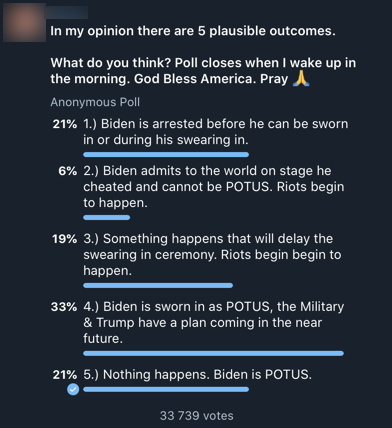🧵In coming days & weeks, a bunch of awesome younger folks will be taking on roles in the Biden Administration, some for their first experience in government. Herewith some free advice, worth what you paid for it. I encourage others to add their best advice below this thread! 1/
Good luck, and thank you.
/fin
More from Biden
1. Ben Rhodes’s comment dismissing the concerns of former political prisoners and US hostages in Iran regarding Rob Malley’s potential appointment as Iran envoy is deeply unprofessional and offensive. As my own story illustrates, not everything is about partisan DC politics.
2. In 2016 I was a Princeton graduate student who excitedly supported the JCPOA and the new era of Iran-US diplomacy it was meant to usher. Such was my optimism that I actually went to Iran for dissertation research. That’s when my nightmare began.
3. I was arrested by Iranian security forces and held hostage in Evin prison-away from my wife and infant son-for more than 3 years. The regime knew I was innocent and told me so. It took me 40 months in Evin to comprehend what had happened to me.
4. As a political prisoner I’ve likely had more intensive contact with Iranian hardliners than most Iran watchers in the US, especially US govt officials like Mr. Rhodes and Malley. I believe the insights derived from that experience have a unique value.
5. I support strengthening the nuclear deal, but am convinced the JCPOA of 2015 is well-intended yet inadequate. Simply lifting pressure against Iran and allowing it to benefit from economic integration produced NO further incentive for the regime to change its behavior.
I think Joe Biden should pick his Iran envoy, not Tom Cotton and a bunch of cheerleaders for MBS and American authoritarianism. Elections have consequences.
— Ben Rhodes (@brhodes) January 22, 2021
2. In 2016 I was a Princeton graduate student who excitedly supported the JCPOA and the new era of Iran-US diplomacy it was meant to usher. Such was my optimism that I actually went to Iran for dissertation research. That’s when my nightmare began.
3. I was arrested by Iranian security forces and held hostage in Evin prison-away from my wife and infant son-for more than 3 years. The regime knew I was innocent and told me so. It took me 40 months in Evin to comprehend what had happened to me.
4. As a political prisoner I’ve likely had more intensive contact with Iranian hardliners than most Iran watchers in the US, especially US govt officials like Mr. Rhodes and Malley. I believe the insights derived from that experience have a unique value.
5. I support strengthening the nuclear deal, but am convinced the JCPOA of 2015 is well-intended yet inadequate. Simply lifting pressure against Iran and allowing it to benefit from economic integration produced NO further incentive for the regime to change its behavior.
Okay. That was quick. I’m done with Biden. Renata Hesse is total nightmare for workers. Her previous stint in DOJ had her tightening restrictions on songwriters while letting big tech off the hook. She is a pawn of Silicon Valley. Be very very afraid.
Former Google attorney Renata Hesse when working at DOJ antitrust tried to change the details of the BMI and ASCAP consent decrees that would have made a $1 Billion lawsuit against Google go away. This is horrendously corrupt. This is a terrible terrible start for Biden.
https://t.co/yM5ej1rIBN
https://t.co/hkc1B31cR7
https://t.co/J5f3C90qsh
The Prospect and The Intercept have learned that Renata Hesse, a former Obama Justice Department official who then went on to work for Google and Amazon, is a leading contender to head up the DoJ Antitrust Division.
— David Dayen (@ddayen) January 15, 2021
Former Google attorney Renata Hesse when working at DOJ antitrust tried to change the details of the BMI and ASCAP consent decrees that would have made a $1 Billion lawsuit against Google go away. This is horrendously corrupt. This is a terrible terrible start for Biden.
https://t.co/yM5ej1rIBN
https://t.co/hkc1B31cR7
https://t.co/J5f3C90qsh





















